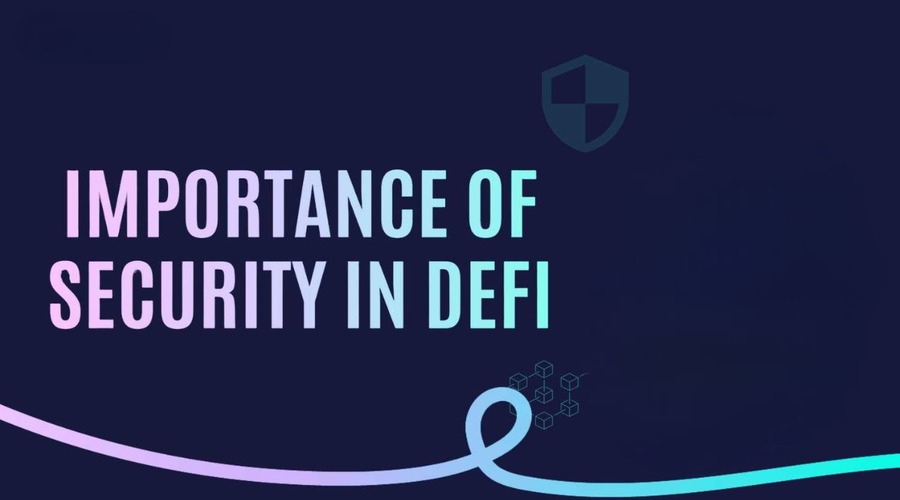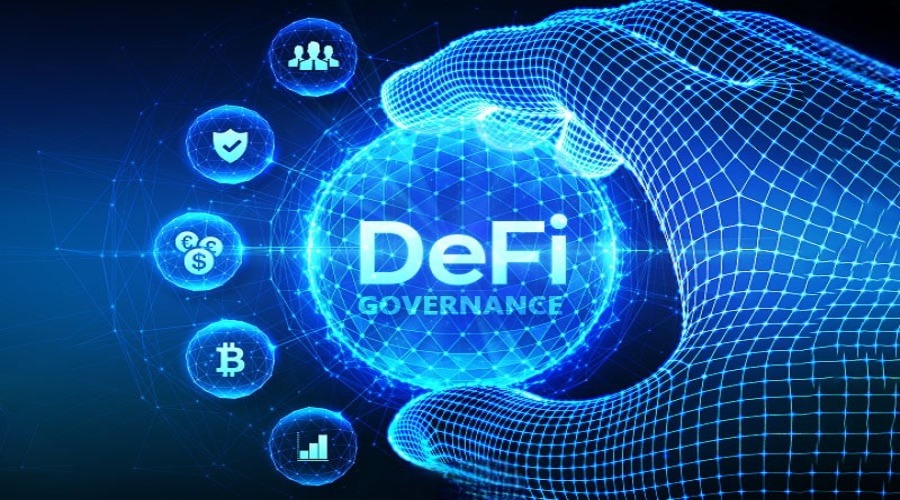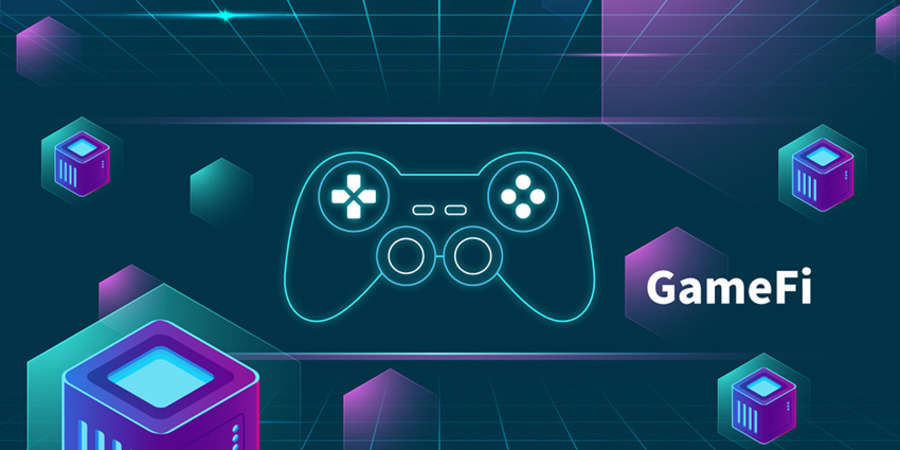Decentralized Finance (DeFi) has revolutionized the financial landscape by offering open, permissionless financial services powered by blockchain technology. As DeFi continues to gain traction, ensuring the security of these decentralized platforms becomes paramount. Decentralized governance plays a crucial role in safeguarding the integrity and reliability of DeFi ecosystems. This article explores the role of decentralized governance in enhancing DeFi security and provides insights into best practices for effective governance.
What is Decentralized Governance?
Decentralized governance refers to the process of making decisions and managing protocols in a decentralized manner, without the need for centralized authorities. In the context of DeFi, it involves creating mechanisms that allow participants to have a say in protocol upgrades, parameter adjustments, and risk management.
Principles of Decentralized Governance in DeFi Security
- Transparency: Decentralized governance promotes transparency by providing open access to decision-making processes, allowing participants to scrutinize and understand protocol changes.
- Inclusivity: It encourages inclusivity by enabling all participants to participate in governance, regardless of their holdings or background.
- Decentralization: Governance should be distributed across multiple stakeholders, avoiding the concentration of power and ensuring a more robust decision-making process.
- Autonomy: Decentralized governance empowers participants by giving them the autonomy to make decisions regarding the protocol’s future. It reduces dependence on central authorities and allows individuals to have a direct impact on the platform’s development.
- Meritocracy: Decentralized governance values meritocracy, where decisions are made based on the expertise, knowledge, and contributions of participants. It encourages active involvement from those who possess the necessary skills and insights to contribute meaningfully to the governance process.
- Resilience: By distributing decision-making authority, decentralized governance enhances the resilience of the protocol. It reduces the risks associated with a single point of failure and ensures that the platform can continue functioning even if certain participants are unavailable or compromised.
- Adaptability: Decentralized governance allows for greater adaptability to changing circumstances and market dynamics. It enables the protocol to evolve and incorporate improvements based on feedback from the community, addressing emerging security challenges and user requirements more effectively.
Benefits of Decentralized Governance in DeFi Security
Decentralized governance offers several benefits for DeFi platforms and their users:
- Increased Security: By involving multiple participants in decision-making, decentralized governance reduces the risk of malicious actions and enhances the overall security of the system.
- Community Empowerment: Participants have a voice in shaping the future of the platform, fostering a sense of ownership and community engagement.
- Flexibility and Adaptability: Decentralized governance enables protocols to adapt to changing market conditions and evolving user needs more efficiently.
- Transparency and Trust: Decentralized governance promotes transparency by providing visibility into decision-making processes. This transparency builds trust among users, as they can verify that the governance decisions align with the platform’s objectives and the community’s best interests.
- Accountability: Decentralized governance holds participants accountable for their actions and decisions. Since governance decisions are transparent and recorded on the blockchain, it becomes easier to identify and address any instances of misconduct or negligence, fostering responsible behavior within the ecosystem.
- Resilience and Anti-Censorship: Decentralized governance enhances the resilience of DeFi platforms by reducing the vulnerability to censorship or external control. Since decision-making power is distributed among multiple stakeholders, it becomes more difficult for any single entity to exert undue influence or manipulate the governance process.
- Efficiency and Speed: Decentralized governance enables faster decision-making compared to traditional centralized systems. It eliminates the need for lengthy bureaucratic processes, enabling the platform to respond quickly to emerging security threats or evolving market conditions.
The Importance of Security in DeFi

Security is a critical concern in the DeFi ecosystem, given the value of assets and the potential risks associated with smart contracts and decentralized applications. Without robust security measures, DeFi platforms can become vulnerable to attacks, leading to financial losses and loss of trust from users.
Challenges in DeFi Security
While decentralized governance offers solutions to enhance security, several challenges persist in the DeFi space:
- Smart Contract Vulnerabilities: Smart contracts serve as the building blocks of DeFi applications. However, they are prone to vulnerabilities such as coding errors, reentrancy attacks, and logic flaws. These vulnerabilities can be exploited by malicious actors to compromise the security of the entire protocol.
- Governance Risks: Decentralized governance introduces its own set of risks, including collusion, manipulation, and governance attacks. If governance processes are not robust, bad actors can influence decision-making and undermine the integrity of the platform.
- External Exploits: DeFi platforms are not only exposed to internal risks but also face external exploits. These exploits can include hacking attempts, oracle manipulation, and flash loan attacks. Without proper security measures, these external threats can compromise the funds and operations of DeFi protocols.
How Decentralized Governance Enhances DeFi Security
Decentralized governance plays a pivotal role in mitigating the security challenges faced by DeFi platforms. Here are some ways in which it enhances security:
- Transparency and Accountability: Decentralized governance promotes transparency by allowing participants to monitor protocol changes and decisions. This transparency fosters accountability among stakeholders and reduces the likelihood of malicious actions going unnoticed.
- Community Participation: By involving the community in decision-making, decentralized governance encourages a wide range of perspectives and expertise. Community participation leads to more robust discussions and ensures that the interests of various stakeholders are taken into account when making security-related decisions.
- Swift Response to Threats: Decentralized governance allows for swift responses to emerging security threats. With a decentralized decision-making process, the community can quickly identify and address vulnerabilities, implement necessary changes, and enhance the security of the protocol.
Best Practices for Decentralized Governance in DeFi
To ensure effective governance and security in DeFi, the following best practices should be adopted:
- Secure Smart Contracts: Thorough security audits and code reviews should be conducted before deploying smart contracts. Continuous monitoring and vulnerability assessments are also crucial to identify and address any potential security issues promptly.
- Distributed Consensus: Decentralized governance should strive for distributed consensus, avoiding the concentration of power among a few stakeholders. This ensures a fair and balanced decision-making process, reducing the risk of collusion and manipulation.
- Effective Risk Management: DeFi protocols should implement robust risk management frameworks. This includes comprehensive risk assessments, stress testing, and contingency plans to mitigate potential security threats and minimize the impact of any vulnerabilities.
Case Studies of Decentralized Governance in DeFi Security
Let’s examine two prominent examples of DeFi platforms that have successfully implemented decentralized governance for enhanced security:
MakerDAO
MakerDAO, a leading DeFi platform, utilizes decentralized governance to manage its stablecoin, Dai. The community actively participates in proposing and voting on changes to the protocol. This approach ensures transparency, accountability, and security in governing the stablecoin’s stability and operation.
Compound
Compound is another notable DeFi protocol that leverages decentralized governance. The platform enables token holders to participate in the governance process, allowing them to propose and vote on various protocol upgrades. This decentralized decision-making mechanism has contributed to the security and evolution of the Compound ecosystem.
Aave
Aave is a popular DeFi protocol that offers lending and borrowing services. It is known for its robust decentralized governance model. Aave token holders can participate in the governance process by submitting proposals, voting on protocol upgrades, and deciding on key parameters such as interest rates and collateral assets. This decentralized governance approach ensures that the platform remains secure, adaptable, and responsive to the needs of its users.
Uniswap
Uniswap is a decentralized exchange protocol that has revolutionized the way users trade tokens on Ethereum. It employs a unique decentralized governance model called “UNI governance.” UNI token holders have the power to shape the platform’s future by voting on governance proposals, including upgrades, fee adjustments, and other protocol parameters. The decentralized governance of Uniswap ensures transparency, community involvement, and the ongoing enhancement of security measures.
These case studies exemplify how decentralized governance models have been successfully implemented in DeFi platforms, empowering users and fostering security through transparent decision-making processes.
Future of Decentralized Governance in DeFi
As DeFi continues to grow, the role of decentralized governance in ensuring security will become even more crucial. With ongoing advancements in blockchain technology, we can expect the development of more sophisticated governance mechanisms that further enhance the security and resilience of DeFi platforms.
Conclusion
Decentralized governance plays a pivotal role in enhancing the security of DeFi platforms. By promoting transparency, community participation, and swift responses to threats, decentralized governance mitigates security risks and fosters trust among users. Adhering to best practices such as secure smart contracts, distributed consensus, and effective risk management is vital to establishing a secure and resilient DeFi ecosystem.
FAQs
1. Why is decentralized governance important in DeFi?
Decentralized governance allows for community participation and transparency in decision-making, reducing the risk of malicious actions and enhancing the overall security of DeFi platforms.
2. What are the key challenges in DeFi security?
DeFi security faces challenges such as smart contract vulnerabilities, governance risks, and external exploits like hacking and oracle manipulation.
3. How does decentralized governance enhance DeFi security?
Decentralized governance enhances DeFi security through transparency, accountability, community participation, and swift responses to threats.
4. What are some best practices for decentralized governance in DeFi?
Best practices include secure smart contracts, distributed consensus, and effective risk management frameworks.
5. What are some notable examples of DeFi platforms with decentralized governance?
MakerDAO and Compound are prominent examples of DeFi platforms that have successfully implemented decentralized governance for enhanced security.





